考研·翻译硕士:刘师舜·英译·柳宗元·河间传
考研·翻译硕士:刘师舜·英译·柳宗元·河间传
柳宗元·《河间传》英译
河间,淫妇人也。不欲言其姓,故以邑称。始妇人居戚里,有贤操。自未嫁,固已恶群戚之乱尨,羞与为类。独深居,为翦制缕结。
既嫁,不及其舅,独养姑,谨甚。未尝言门外事。又礼敬夫,宾友之,相与为肺腑者。
其族类丑行者谋曰:“若河间何?”其甚者曰:“必坏之。”乃谋以车众造门,邀之遨嬉。且美其辞曰:“自吾里有河间,戚里之人,日夜为饬厉。一有小不善,唯恐闻焉。今欲更其故,以相效为礼节。愿朝夕望若仪状,以自惕也。”
河间固谢不欲。姑怒曰:“今人好辞来,以一接新妇来为得师。何拒之坚也?”辞曰:“闻妇之道,以贞顺静专为礼。若夫矜车服,耀首饰,族出讙闹,以饮食观游,非妇人宜也。”姑强之,乃从之游。过市。
或曰:“市少南,入浮图。有国公吴叟,始图东南壁,甚怪,可使奚官先壁道。”乃入观。观已,延及客位,具食帷床之侧。闻男子欬者,河间惊,跣走出。召从者驰车归。泣数日,愈自闭,不与众戚通。
戚里乃更来谢曰:“河间之遽也。犹以前故,得无罪吾属耶?向之欬者,为膳奴耳。”曰:“数人笑于门,如是何耶?”群戚闻且退。
期年,乃敢复召邀于姑,必致之,与偕行。遂入阝丰隑州西浮图两间。叩槛,出鱼鳖食之。河间为一笑,众乃欢。俄而又引至食所,空无帷幕,廊庑廓然,河间乃肯入。先壁群恶少于北牖下。降帘,使女子为秦声。倨坐观之。有顷,壁者出宿。
选貌美阴大者主河间,乃便抱持河间。河间号且泣。婢夹持之,或谕以利,或骂且笑之。河间窃顾,视持己者甚美,左右为不善者已更得适意,鼻息咈然,意不能无动。力稍纵,主者幸一遂焉,因拥致之房。河间收泣,甚适,自庆未始得也。
至日仄,食具,类呼之食。曰:“吾不食矣。”旦暮驾车,相戒归。河间曰:“吾不归矣。必与是人俱死。”群戚反大闷,不得已俱宿焉。
夫骑来迎,莫得见。左右力制。明日乃肯归。持淫夫大泣,啮臂相与盟,而后就车。既归,不忍视其夫。闭目曰:“吾。”与之百物,卒不食,饵以善药,挥去。心怦怦,恒若危柱之弦。夫来,辄大骂。终不一开目。愈益恶之。夫不胜其忧。数日,乃曰:“吾病且死,非药饵能已。为吾召鬼解除之,然必以夜。”
其夫自河间病,言如狂人,思所以悦其心。度无不为。时上恶夜祠甚。夫无所避。既张具。河间命邑臣告其夫召鬼祝诅。上下吏讯验笞杀之。将死,犹曰:“吾负夫人,吾负夫人。”
河间大喜,不为服。辟门,召所与淫者倮爱为荒淫。居一岁,所淫者衰,益厌,乃出之。
召长安无赖男子,晨夜交于门。犹不慊,又为酒垆西南隅。己居楼上,微观之。凿小门,以女侍饵焉。凡来饮酒,大鼻者,少且壮者,美颜色者,善为酒戏者,皆上与合,且合且窥,恐失一男子也。犹日呻呼懵懵,以为不足。
积十余年,病髓竭而死。自是虽戚里为邪行者,闻河间之名,则掩鼻蹙頞,皆不欲道也。柳先生曰:“天下之士,为修洁者,有如河间之始为妻妇者乎?天下之言朋友相慕望,有如河间与其夫之切密者乎?河间一自败于强暴,诚服其利,归敌其夫,犹盗贼仇雠,不忍一视其面,卒计以杀之,无须臾之戚。则凡以情爱相恋结者,得不有邪利之猾其中耶?亦足知恩之难恃矣。朋友固如此,况君臣之际尤可畏哉?余故私自列云。”

Biography of Hochien
Liu Tsung-yüan
Hochien was a lewd woman. Reluctance to disclose her identity caused her to be named after her hsien or district. First she lived in a village with some relatives and at that time she was very virtuous. Before she got married, she detested the laxity visible among her relatives and deemed it a disgrace to associate with them. She remained discreetly in the back of her house and attended to her dress designs, spinning, weaving and knitting.
When she was married her father-in-law had died, and she served her mother-in-law very attentively. She never talked about anything that happened outside her house. She was respectful to her husband, treating him like a guest and withal a bosom friend.
Those of her relatives who had a low character got together and plotted against her, asking, “What can we do about Hochien?” The worst amongst them said, “We must try to corrupt her.” They procured a carriage, and a group of them rode to her house together. They invited her to go out and enjoy herself with them, but said to her euphemistically: “Since you came to our village, your relatives have all been desperately concerned day and night to behave themselves. When they have committed even a slight misdemeanor they are afraid of its leaking out. Now that we wish to see their ways changed, we intend to have these relatives make a conscientious effort morning and night to emulate your good example.”
Hochien politely declined the offer, but her mother-in-law said angrily, “They have come to persuade you courteously to become their teacher. Why are you so firm in rejecting the invitation?” “I have heard,” she replied, “that the way of a woman is to be chaste, meek, calm and dedicated. To show off fancy carriages, costumes and jewelry, and go out in noisy gatherings and indulge in food, drink and merriment are not worthy of a woman.” Under strong pressure from the mother-in-law, however, she finally consented and went with the company.
After winding through the streets someone said, “If we enter the Buddhist pagoda a short distance southward, we shall find an old man by the same of Wu, a painter-craftsman known throughout the nation, who has just painted the southeastern wall. These paintings are very old. We can send a servant to guide us there.” Then they entered the structure to see its inside. After they had finished viewing, she was invited to the guest room, where food was spread out beside a curtained bed. Suddenly she heard a man’s cough. She was so frightened that she ran out without her shoes. Thereupon she ordered an attendant to take her home post-haste in a carriage. She wept for several days, and thereafter she confined herself even more to her own house without communicating with her relatives.
Then they came to offer their apologies, saying, “What came over you? Are you still offended with us because of what happened? The man who coughed that day was only a kitchen hand.” “But why did several people laugh near the door?” she queried. Upon hearing this, the relatives withdrew.
It was not until a whole year later that the relatives dared visit Hochien’s mother-in-law again and prevailed upon her to urge Hochien to rejoin them. This time they went to another pagoda west of a certain sandbank. They knocked and entered, and were treated to fish and turtle. Hochien smiled, and her companions were pleased. She was soon led to a dining-room without any curtains where the corridors were empty. Hochien consented to enter this room, in which a number of wicked youths had been secreted in the wall under the northern window. Then the curtain was let down and some girls were ordered to play Ch’in music. Hochien and others squatted down to watch them. Shortly afterward, the youths secreted in the wall came out to sleep with the girls.
A handsome man with a good-sized was selected to take on Hochien. When he embraced her, she screamed and cried. Then the maids held her, some trying to get her to see what pleasure it would bring to her and others scolding and making fun of her. As she stole a glance at the man who had her in his arms, she found him very handsome. Those around who were indulging in wicked behavior were more and more gratified, breathing heavily. She could not but be affected and as soon as she relaxed her resistance a little, her adversary got what he wanted and took her in his embrace to another room. Hochien stopped crying and began to enjoy herself greatly, and congratulated herself on pleasures she had never experienced before.
When dinner was being served toward evening and she was called to partake of it, she said that she did not care for it. Later, as the carriage was harnessed for her to return home, she said, “I am not going home. I won’t be parted from this man until I die.” Now her relatives were greatly at a loss what to do, but they had to agree to stay behind at least overnight.
Hochien’s husband went to fetch her home, but he did not get to see her. The next day she consented to go home only when she was forced grabbed the man with whom she had had the affair and cried bitterly, the two swearing eternal loyalty to each other. On her arrival home, she could not bear to look at her husband. Keeping her eyes closed, she said, “I am sick.” She not only refused to eat anything, but even rejected good medicine. Her heart throbbed as tensely as a string on a lute’s fret in danger of breaking. Whenever her husband came near her, she berated him severely. She never opened her eyes, and became more and more resentful of her husband. The distress was more than the husband could stand. “I am so sick that I shall soon die!” she said several days later. “I cannot possibly be cured by medicine; summon a spirit to get me released from this condition, but it must be by night.”
Immediately after Hochien became sick, her husband raved like a lunatic and was racking his brains to find a way to please her. She reckoned that he was prepared to go to any lengths. At that time the Emperor disliked very much the practice of praying to spirits at night, but the husband was prepared to take the consequences. So he frequented the shrines of darkness dedicated to evil spirits and worshipped there. Hochien had a member of the magistrate’s office bring her husband to trial for conjuring up spirits to her injury. As a result of this trumped-up charge, he was hauled into court, tried, whipped and sentenced to death. Even when he was nearing the end of his life, he cried: “I have let my wife down! I have let my wife down!”
Thereupon Hochien was greatly pleased. Without as much as pretending to mourn for her deceased husband, she opened her door wide and sent for the man with whom she had been intimate. She shamelessly resumed her illicit relations with him. But, after the lapse of a year, the man showed signs of flagging.. she got tired of him, and drove him out.
Then she called together a group of good-for-nothings from Ch’angan, and they engaged in orgies day and night in her house. Not content with this, she set up a wind-store at the southwestern corner of the house, and stayed upstairs herself to watch the goings-on. Though an installed side door, she sought to attract passers-by, using young servant girls as bait. Of the men who went in to drink, she chose only those with big noses, the robust, the young and the handsome, who were most frolicsome after drinking, to be taken upstairs to give her satisfaction. All the time, she would keep an eye open, lest she miss even one man. And yet she never ceased to sigh dreamily, thereby showing her appetites to be still unsatiated.
After more than a decade of dissipation, she fell sick; her spirit and health broke down, and she soon died. Thereafter, even those relatives in the village who led an immoral life turned up their noses and knitted their brows whenever the name of Hochien was mentioned. No one cared to repeat it.
The author comments: “Of the scholars of the world, who can compare in virtue and purity with Hochien when she first became a wife? Of friends who are said to have admired one another, is there any who can be as close as Hochien was to her husband? Once she succumbed to force, she became convinced of the pleasure, and returned home even to oppose her husband, treating him like a robber and an enemy. She could not bear to see his face and finally plotted his death, and did not grieve for him for a moment. Can those, then, who are joined together by affection and love be free from the evil influence of self-interest? We see here that mutual devotion is something difficult to rely upon. This is true of friends; is it not even more terrifyingly so in the relations between a ruler and his subjects? I have therefore taken the liberty to set down this note.”
-

- DNF官方客服来了,国庆版本客服答疑&详尽介绍
-
2023-11-28 07:56:24
-
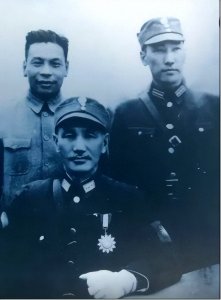
- 蒋经国逝世后,五个儿子死了四个,唯一在世的认祖归宗艰难
-
2023-11-28 07:54:09
-

- 山东最美温泉来了,收好这份温泉攻略!
-
2023-11-28 07:51:54
-

- 青云志:清冷孤傲的陆雪琪待人一向冷淡,却将唯一的温柔给了他
-
2023-11-28 07:49:39
-

- 宝莱坞之王,沙鲁克汗的十大佳作
-
2023-11-28 07:47:24
-

- 英伦女神:泽塔琼斯,相差25岁的忘年恋,22年隐忍不曾离弃
-
2023-11-28 07:45:09
-
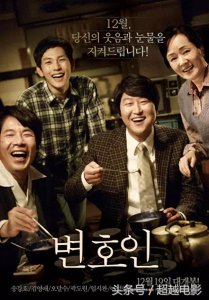
- 辩护人原型的真实结局,让我流泪
-
2023-11-27 18:27:00
-
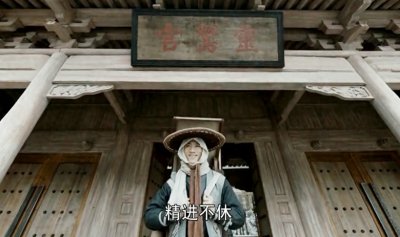
- 新《天龙八部》大结局,虚竹为何离家出走,难道是老婆过于强势
-
2023-11-27 18:24:45
-

- 《八分钟的温暖》大结局?终于知道谁是男主?导演:期待第二部!
-
2023-11-27 18:22:30
-

- 《请回答1994》的结局你猜中了吗?
-
2023-11-27 18:20:15
-

- 完美世界人物结局
-
2023-11-27 18:18:00
-

- 朱军案大结局
-
2023-11-27 18:15:46
-

- 阿丽塔结局三个彩蛋具体内容 阿丽塔结局伏笔你看懂了吗
-
2023-11-27 18:13:31
-

- 全员HE!《天空之城》结局了,到最后一秒仍是乐观中带忧伤
-
2023-11-27 18:11:16
-
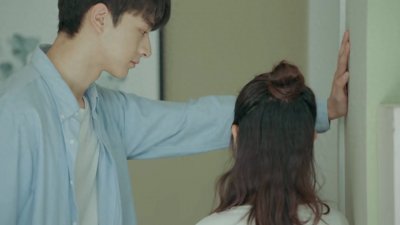
- 大结局终于同床,顾未易又惹司徒末生气,亲亲被拒绝,我爱你超甜
-
2023-11-27 18:09:01
-

- HBO权游大结局,雪诺亲手杀了龙妈,原来结尾竟然这么深刻
-
2023-11-27 18:06:46
-
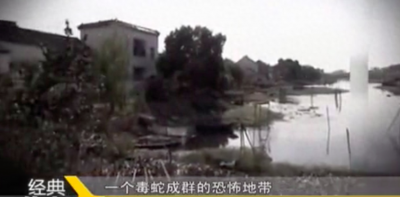
- 中国第一“蛇村”之谜:162户人家400万条蛇,“蛇王”和专家揭秘
-
2023-11-27 16:04:48
-
- 武功绝学之宋氏形意拳
-
2023-11-27 16:02:33
-

- 玛哈:泰国最荒淫的国王,为取悦后宫,挥霍数百亿,封狗当元帅
-
2023-11-27 16:00:18
-
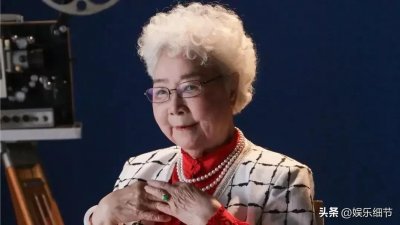
- 94岁艺术家田华:晚年一家4口患癌,为何儿子去世当天去做评委?
-
2023-11-27 15:58:03



 70后退休工资一览表(70后最新退休年龄表)
70后退休工资一览表(70后最新退休年龄表)